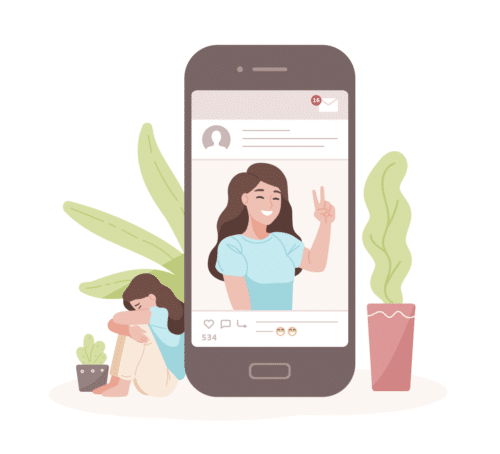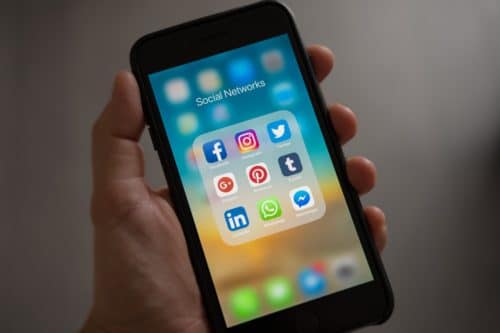 Whether you’re an introvert or extrovert, you are still a human being, and human beings are social creatures. Our levels of extroversion and introversion can be thought of on a scale that lets us know how much interaction we need. We thrive on our interactions with our community of family, friends, and close loved ones. The rapid growth of social media has offered an abundance of ways to stay socially connected with people from all over the world. Although using social media can have some positive features, for example making it easier to maintain connections with close friends and family, there are negative ones too, and these have the potential to be quite harmful. Here’s some information about social media and mental health.
Whether you’re an introvert or extrovert, you are still a human being, and human beings are social creatures. Our levels of extroversion and introversion can be thought of on a scale that lets us know how much interaction we need. We thrive on our interactions with our community of family, friends, and close loved ones. The rapid growth of social media has offered an abundance of ways to stay socially connected with people from all over the world. Although using social media can have some positive features, for example making it easier to maintain connections with close friends and family, there are negative ones too, and these have the potential to be quite harmful. Here’s some information about social media and mental health.
Unrealistic Expectations
Social media can set up unrealistic expectations for people of all backgrounds. With virtually universal access to powerful photo editing software, many people tend to show the best version of themselves, idealized to the point of being unrealistic. Editing can adjust body shape, skin texture, and facial features. These images posted on social media give many people the impression that these photos are “realistic expectations,” and that their own individual features are “wrong” or “unattractive.” This can create or worsen poor self-image, and push individuals to feel that they need to “correct” their appearance in the real world. These “corrections” may include extreme dieting and over-exercising in an attempt to achieve unrealistic body features. They may also try to adjust their facial features through cosmetic procedures. The list of unrealistic expectations created by social media is endless.
 External Validation
External Validation
Not only do we feel the need to “improve” ourselves, but also the need for external validation. Every post and comment includes an option to “like” a photo, and for many “like” is an external vote of approval. This can lead to a spiraling process whereby the more likes are received, the more likes are needed to feel validated. This degrades the ability to provide self-validation and approval. When identity becomes tied to what others think, it can create a loss of security. This can lead to lower self-esteem and reduced intellectual independence and integrity.
Positive Impacts of Social Media
When used effectively, social media can aid mental healthcare. The pages and people that an individual chooses to follow can become daily moments of motivation and affirmation. Following a profile promoting mindfulness, self-care, and individual self-validation can encourage positive mental health exercises. Social media can also help teach new skills in many areas, such as mental health. There are many profiles that offer a wide range of free mental health guidelines for those with, for example, anxiety, depression, or trauma. Social media have been used as a platform to connect people who have common interests or issues. This can help groups of people support one another.
How to Keep Social Media from Affecting Your Mental Health Negatively
One way to use social media to help with mental health is by re-evaluating profiles you may follow or watch. It may be helpful to abandon pages promoting unrealistic body images, poor self-care, and overall harmful content. Consider following profiles that promote mental healthcare, body positivity, and positive self-care actions. It can be very helpful to consider setting limits on how often you use social media. Many smartphones have the option to set timers for overall phone use, in addition to time use on specific apps.
Connecting with a friend or family member to help make this transition can be helpful during this time. Such a person can help with accountability in following through with these adjustments in how social media is used. The reason why a buddy system can help is that it is sometimes too easy to minimize or dismiss the impact of following some pages or of spending too much time on social media. We may often minimize its impact by telling ourselves, “it’s only one profile,” or “it’s only one more minute.” This will increase the negative impact of social media. A buddy system can help create stronger boundaries, and as a result, encourage positive mental health habits with social media.
Contact us today to schedule a complimentary 15-minute phone consultation or to book an appointment.

